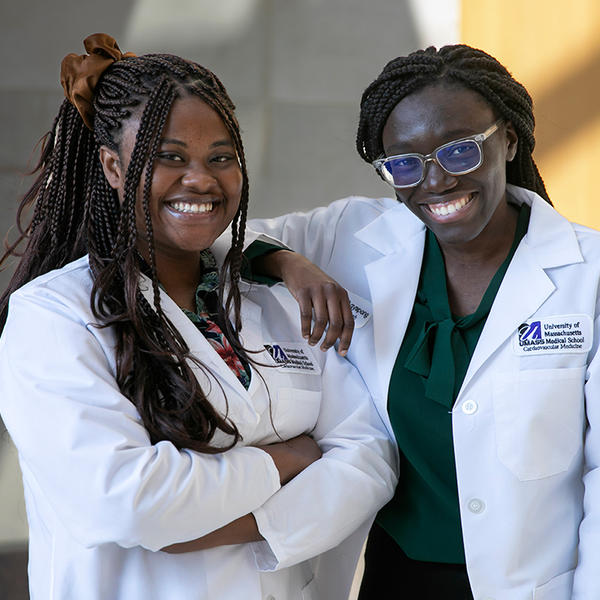"These students are ready to achieve at a high level but there is something holding them back," Mills said. "All they need is an opportunity and they're really going to thrive. We look for students who are extremely promising from groups who haven't historically persisted in STEM, and provide mentorship from faculty and peers and the chance to see themselves as scientists, not only students of science."
Each year, FRAP welcomes 10 to 16 students to an out-of-classroom research lab. First-year students are paired with a senior research student, who sometimes started their STEM journey in the same program. All students in the program get paid for their involvement, which includes eight hours a week in a lab, as well as a weekly seminar.
The financial component is one of the key aspects to the program, Mills said, as it becomes more accessible to all who are invited. The compensation eliminates the necessity for some to juggle both a work-study and a lab.
"An important aspect to the program is making it fundable for the students," Mills said. "It's not asking first-year students to do something extra on top of their other responsibilities. Instead of work study or other campus employment, they are working on something that's bringing them into the sciences and helping them to make connections with faculty and their peers."
Mensah Otabil started in the program as a first-year research student and continued as a senior mentor.
"This program really gave me confidence. Imagine being a first-generation college student and also an immigrant starting college," Mensah Otabil said. "I was just trying to figure my way out. Being a part of this amazing program, it really supports you, guides you and you see all these researchers and professors and they’re all there rooting for you. They want to see you succeed. It really motivated me, like, 'Wow, I can actually do this. I have a whole team supporting me, how can I fail?'"
Mensah Otabil is now a clinical research coordinator at UMass Chan Medical School in Worcester and helps manage several National Institutes of Health and sponsor-funded clinical trials in cardiovascular and digital medicine in the school’s McManus Lab.
Throughout her journey to her current role at UMass, Mensah Otabil has taken the confidence gained through FRAP and paid it forward in several ways. As a senior at Holy Cross, she mentored first-year student Nakesha Agyapong '22, who now works alongside Mensah Otabil at the McManus Lab.
"I think the way the program is structured, you really build a sense of community with you and your mentor, as well as with the rest of the people in FRAP, the people in your lab and even outside of the FRAP program," Agyapong said. 'I think all of that really helps you build confidence in yourself to continue to pursue science.'"
Mensah Otabil took FRAP a step further at Holy Cross and co-founded the organization Students of Color in STEM on campus. When she arrived at UMass, she helped create a new program: Pipeline for Underrepresented Students in Medicine (PRISM).
The program introduces UMass Chan students from diverse backgrounds who are traditionally underrepresented in medicine to clinical research and health care opportunities.
None of this would have been possible without FRAP, Mensah Otabil said, which acted as a catalyst for her STEM passion.
"Someone may think FRAP is small, but it really sparked a fire in me my first year," Mensah Otabil said. "I don’t know what my trajectory into science and research would have been if it wasn’t for FRAP."


